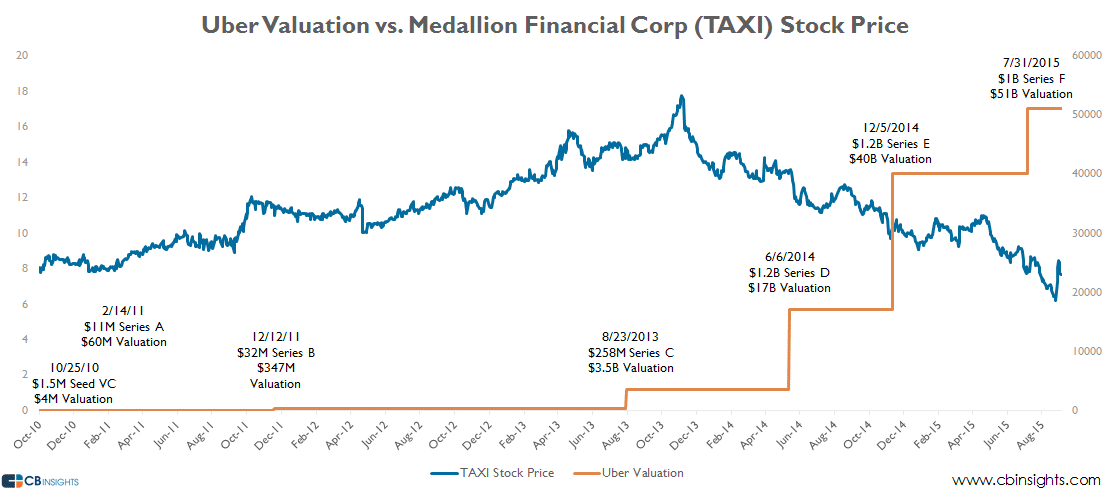I’ve been a general manager for most of my nearly thirty-year career. Among many other roles, I’ve been a military officer, a manufacturing CEO, and a senior administrator at a university.
Despite the seemingly dissimilar nature of these fields of work, I’ve learned that the challenges of a general manager and leader rarely vary. Some truths transcend industry sector.
Over the years, I’ve accumulated what I believe are the most impactful tips that work no matter the context; they are relevant no matter the industry.
The list below is an attempt to put in one place the accumulated wisdom of leading an organization toward a common goal.
The list has some lessons I’ve learned on my own but many draw on the comments and experiences of others playing on much bigger stages. If you have your own, leave a comment at the end of the article.
1. Action is almost always better than inaction
The famous British admiral Lord Nelson has been quoted frequently as having said;
…no captain can do very wrong if he places his ship alongside that of the enemy.”
What rarely gets mentioned is the first part of that quotation. The entire sentence reads;
But in case signals can neither be seen or perfectly understood, no captain can do very wrong if he places his ship alongside that of the enemy.”
In business, the same is true. Doing nothing, especially because of “analysis paralysis,” can be more deadly than making your best guess and taking action.
So, when in doubt, take action!
2. Deciding what not to do is as important as deciding what to do
Strategy should always have a focus. Without focus, you are stuck with a list of disjointed “to-dos.”
Warren Buffett reinforced this thinking when he said;
The difference between successful people and really successful people is that the really successfully people say ‘no’ to almost everything.”
It’s saying “no” to the things on a haphazard to-do list that starts to shape a strategy.
The graveyard of corporate failures is littered with companies that tried to be all things to all people.
3. Never assume things will always be as they are
Taxi companies were surprised by Uber and didn’t react quickly enough to the threat. Complacency had become the norm.
The chart below is an excellent visual manifestation of this complacency. The blue line represents the stock of a company that loans money to taxi ventures that are interested in buying medallions (licenses) to operate taxicabs.
The licenses were an asset of limited supply, doled out by city governments.
The stock of Medallion Financial, then, is an excellent proxy for the value of medallions and subsequently their demand.
You can see the inverse correlation of the stock price of Medallion Financial and the value of Uber. As Uber took hold, the value of a medallion dropped, which in turn made the value of Medallion Financial drop because there was less demand for their services.
Companies that can look at data and understand what it tells them about the future will always have an edge on their competitors.

(SOURCE: https://cbi-blog.s3.amazonaws.com/blog/wp-content/uploads/2015/09/uber-vs-TAXI-valuation-chart.png)
4. Saying “thank you” is always a good strategy
My mother is a stickler for thank you notes. She drilled into my sisters and I the importance of sending such notes for every kindness extended our way when we were growing up.
While my mother’s motivation stemmed from an adherence to a code of personal conduct, the principle is essential in other contexts as well.
Winston Churchill said during the Battle of Britain;
Never in the field of human conflict was so much owed to so many by so few.”
He was referring to the RAF pilots protecting Britain during an onslaught of German air attacks early in World War II.
Such vocal support of outstanding performance by a strategic leader is an integral part of success. CEOs and others who do it engender the support of those they lead.
5. What people “always want” will not be what they “always want”
I was one of those geeks who stood in line the first week the iPhone was released to get my hands on one.
To that point, I had not owned a smartphone with email capability. If I had, it was likely I would have had a Blackberry, which held that market at the time.
I recall when I got my phone that my friends with Blackberries (almost all of whom loved them, by the way) said that the iPhone would never succeed because “everybody” wanted a “real” keyboard. But these people failed to realize two things:
a) for those of us who had never used a Blackberry (which was a vast majority of the population), there was no need to transition from a physical keyboard; we knew nothing else and
b) the physical keyboard became much less important as a feature as the superior capabilities of the iPhone in other areas became apparent.
Companies that have an arrogance about what the customer wants are always taught a harsh lesson when the customer reminds them who’s really in charge.
6. Culture matters…a LOT
The recent incident on a United Airlines flight shows that culture matters immensely in an organization and, I’d argue, is more important the larger a company is.
You cannot legislate empathy through an employee handbook. It has to be in the DNA of an organization. If it’s not, bad things happen, like this meme floating around the Internet …

7. It’s okay to be lucky, it’s okay to be smart
It’s not okay to be lucky and think you’re smart: One of my professors from business school said this once, and it’s stuck with me for a long time.
I would argue that those that know the difference between luck and smarts do better in life.
There are those that don’t let hubris get in the way of good decisions, and those that do, which almost never ends well.
For those who don’t remember “Chainsaw” Al Dunlap, look him up. I’d argue he fell into the latter camp.
8. Be sure to understand well Parkinson’s Law
Never heard of it?
While it’s meaning has shifted over the years, its early incarnation went something like this: work expands to fill the allotted time.
This law is perhaps more true than many of Newton’s laws of physics!
If you want to ensure something gets done, give it a deadline. And, sometimes, the more ominous the deadline, the better.
Deadlines bring focus and energy. A lack of them leads to ambivalence and scatter-shot activity.
9. Remember how important it is to have the right people in the right place:
Jim Collins, author of Good to Great, wrote that the first job of a good leader is to;
get the right people on the bus (and the wrong people off the bus) before you figure out where to drive it.”
Note how precise he is with the order of events.
Strategy and tactical initiatives (i.e., where you are driving) are relatively impotent unless you have a team of people in roles that maximize their skills and ensure alignment throughout the organization.
Not having the right people in the right place guarantees a team that works at cross-purposes, making progress slow at best and non-existent at worst.
10. Nothing is forever – even if you are a behemoth
Interested in investing in American Cotton Oil? How about Distilling & Cattle Feeding, Inc? How about National Lead?
Never heard of these companies? They are all original members of the Dow Jones Industrials.
In 1896, the Dow was created with 12 of the best-known industrial companies of the age.
Only one of those companies is around in its original form: General Electric.
I’m sure that U.S. Leather (another member of the inaugural group) thought that its prospects for the future were bright in 1896. But it is one of the only members to not even have a sliver of its DNA still in existence through mergers or acquisitions over the years. It came to a relatively quick demise in 1911.
The point is this: think Google and Apple will survive for your great-grandchildren to see? Maybe. But the odds are against them.
Knowing this, you should run your business or do your job as if somebody is nipping at your heals every minute of every day. Because guess what? Somebody is.

11. The creativity of humans is greater than the capacity of businesses to predict the future
Charles Duell, the one-time Commissioner of the U.S. Patent Office in 1899 infamously said;
Everything that can be invented has been invented.”
It’s fair to say that Mr Duell missed the mark.
In the first ten years after his pronouncement, the nickel-zinc battery, carbide lamp, thumbtack, safety razor, hearing aid, windowed envelope, postage meter, collapsible periscope, airplane, windshield wiper, and paper towel were all invented.
It’s hard to know what somebody working in a garage somewhere in the world might come up with next. And this explains why many leaders and companies lose their strategic way: they don’t keep top of mind all of the brains out there working to make the better mousetrap.
There are literally millions of experiments being run every day, and knowing how they all turn out is virtually impossible.
So it’s important to ask yourself often, “What am I missing? What opportunities does somebody else see that I don’t?”
Companies that do this well are not wholly protected from competitive threat, but they have a decided edge.
12. Know what your core competency is
As businesses grow, they often branch into new lines of work. This growth is not, in itself, bad.
In fact, it’s imperative firms do this to grow. But doing so successfully is dependent on knowing what you are good at.
I used to run a manufacturing company that used exotic alloys made of relatively rare elements. The pricing of these elements (e.g., nickel, chromium, molybdenum) could swing wildly based on geopolitical factors, thus causing the price of the alloys we bought to also vary.
Since the cost of the material was a major one for our business, having such volatility could be dangerous.
That said, we never tried to buy hedging contracts to manage the risk. We found ways to protect ourselves using pricing arrangements with our customers.
We gave up something in doing this … we didn’t get all the benefit if the price of the alloys dropped. But we also weren’t left holding the bag if the price went way up.
I always made the point that doing this was the best strategy.
After all, if I could predict the future and therefore do some hedge investing to take advantage of my forecasting skills, why run a manufacturing company? I’d be off to some board of trade somewhere in the world to buy and sell commodities and make my millions.
Our company made great precision components out of exotic alloys. THAT was our niche. Doing anything else was a distraction.
13. Networks matter, don’t burn bridges between connections in your network
I’m always surprised at how often people who feel they have been aggrieved “go nuclear” in a public way.
Doing this threatens your network in ways that are hard to predict. You don’t know who will say what to whom.
Often, those that take this tack wrap themselves in a cloak of honor, explaining that they had to say what they said; and anyway, it’s their right.
As I noted here, you certainly have a right to say what you want. But others have a right to interpret what you’ve said and make their own conclusions, some of which might not be favorable to you.
14. Predictable surprises are everywhere if you keep your eyes open
Almost always the explosion of the space shuttle Challenger is described as an “accident.” In fact, it was not.
There were very specific failures in management that lead to the death of seven astronauts. In this way, the loss of Challenger, was a “predictable surprise.”
These sorts of surprises lurk everywhere and when they come to the fore, they can be catastrophic.
The housing bubble, Enron, and Chernobyl are all great examples of things that were not accidents and were predictable for those that sought to look. Humans caused these things – humans making decisions and taking actions.
Keeping your antennae up regarding these sorts of predictable surprises is an important part of strategy and leadership.
Doing so helps to keep you from having your own catastrophes to be sure, but they also give you a chance to seize the initiative when others are hit by a self-inflicted disaster.

15. “What’s the worst that can happen?” are five powerful words
I alluded to “analysis paralysis” earlier.
It’s in our nature to try and find out as much as possible before making a decision. And generally speaking, knowing more is better than knowing less. But eventually, you get to a point of diminishing returns.
When at that point, I like to ask;
What’s the worst that can happen?”
Often we paint disasters in our head without really stepping back and thinking through the likely and unlikely outcomes.
Asking yourself this probing question can often help you realize that the worst isn’t that bad. And when that’s the case, you can pull the trigger, gather data based on what happens, and then adjust accordingly.
16. Bad news never gets better with age
It’s irresistible at times to want to “sit” on bad news.
It’s never comfortable to deliver such news whether to an employee, a board of directors, or the public.
Yes, there can be reasons to take time to get your house in order if the news is particularly traumatic. But getting it out sooner rather than later helps you get to the more positive steps that follow and ensures that you aren’t accused of hiding something.
17. Things are never as dire as they seem nor as good as they seem
When Netflix announced that they were going to separate streaming and DVDs by mail into two different services and that customers would have to pick one, it was a disaster.
Many were predicting the firm’s demise in an age where streaming content was ubiquitous and undifferentiated, and DVDs were going the way of the Dodo Bird. But Netflix solved the undifferentiated content problem by developing its own very differentiated content (House of Cards, among others) and left the DVD world behind on its way to an amazing recovery.
On the other end of the spectrum was Commodore Computer.
The parent company that made the Commodore 64 had many better-known (today anyway) brands nervous: Apple and IBM among them. But Commodore fell quickly from its heights as it tried to introduce new products and alienated the customer base that had helped it win substantial market shares in the 1980s.
In both of these examples – Netflix and Commodore – there were times in history when the pundits said “they’ll dominate” or “they’re toast.” But the fact is that things were never as bad as they seemed or as good as they seemed.
Remembering that things are never as bad or good as they seem is an important part of leading and developing a successful strategy.







